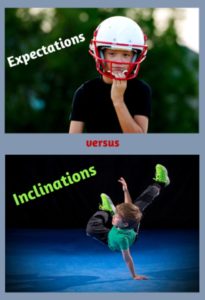Feeling short of time or finding it difficult to concentrate? You can listen to this blog post.
 Anyone who is intimately familiar with adoption recognizes that it includes a profound experience of both/and: both losing and gaining a family, both heartache and joy, both rejection and welcome …
Anyone who is intimately familiar with adoption recognizes that it includes a profound experience of both/and: both losing and gaining a family, both heartache and joy, both rejection and welcome …
The most commonly recognized aspect of rejection in adoption centers on the child’s feeling rejected by his birth mother. (This painful emotion occurs regardless of the reasons that precipitated the adoption no matter how justified or intractable.) Rejection is the very obvious elephant in the room whether adoptees discuss it with their families or not, whether it is acknowledged and validated by their families or not.
When rejection is discussed, it is imperative that parents listen– without refutation or any effort to minimize. As we observe our children’s suffering, we experience many emotions. Empathy for their pain and unease in its presence. We must resist any inclination to alleviate our own discomfort by engaging in efforts to suppress their expression of their thoughts and feelings about being adopted. We need to be strong enough to hear their struggles and engage in some both/and of our own. As parents, we accept that we treasure our children and we recognize that their presence in our family comes at high personal cost to them. Both are true.
Adoption Attunement informs us of many important, emotionally powerful factors. Recognizing and welcoming our children’s complex feelings about adoption is one element of developing a high AQ. Adoption Attunement provides an emotional guardrail for our children as they wrestle with the complex truth of their lives, history, identity and journey to us. Because we love our children so deeply, we validate and do not minimize their experience. An essential part of our effort to be “with” our kids is to avoid adding an additional sense of rejection– one which emanates from us. We would NEVER reject them! Never! Yet adult adoptees tell us that this does happen and that it is profoundly hurtful. What? How?
When adoptive parents impose their fantasies and expectations of their imagined biological child onto their adopted child, he feels rejected by them. He experiences another both/and: like an inadequate, disappointing substitute who is unable to meet his parents’ dream expectations and like an incomplete version of the person his DNA predisposed him to become.
Recently I had a powerful conversation with the spouse of an adoptee. (They had been married over forty years. Thus, she had some perspective on the life-long ramifications of adoption.) She said,
“Parents of adopted children project their ideas of what their children should be like while never seeing the child before them. Their [parent’s] perception feels like rejection to them. Their child, like any child, wants to be accepted for who they are. The parents are not capable of seeing the child before them produces feelings of unworthiness in the child, not accepted, unworthy of a good life [which often leads to the adoptee] undermining [their] success and accomplishments.”
As Adoption Attuned parents we take her insights to heart, recommit to the belief that our children deserve to be loved for themselves, for who they genuinely are, magnificent in their own rights.
___________________________
- Call us at 1-800-653-9445
- Listen to our podcasts: Adoption Matters: Real People. Real Life. Real Talk and Essentials of Adoption Attuned Parenting
- Watch our YouTube channel
- Read Books written by our coaches
- Click to learn more about Adoption Attuned Certified coaching!


